12 Foods Everyone Over 50 Should Eat for Serious Weight Loss

Over 50 and looking for simple ways to lose those stubborn extra pounds? It all starts in the kitchen with these 10 weight loss foods everyone over 50 should work into their diet. Eat This, Not That! spoke with the experts who share their most coveted recommendations for go-to weight loss foods to incorporate into your regular menu rotation as you age. With some tweaks to your weekly shopping list, you'll be on your way to total success. Keep reading to learn what registered dietitians have to say about the best weight loss foods, and next up, don't miss 4 Healthy Smoothies To Maximize Weight Loss This Winter, Expert Says.
Leafy Greens
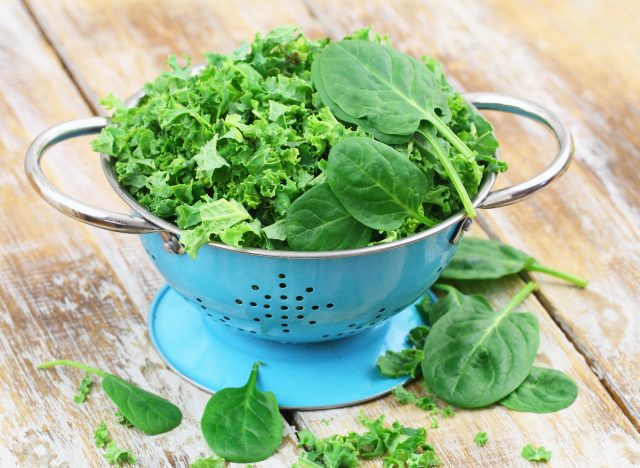
We chatted with Melissa Mitri, MS, RD of Melissa Mitri Nutrition, who recommends leafy green vegetables as one of the top weight loss foods if you're over 50. Examples include collard greens, spinach, and kale, which happen to be low-calorie and are chock-full of water and fiber that will keep you feeling full.
"Eating more of these vegetables can help you keep your daily calorie content down, making it easier to lose weight," Mitri says, adding, "They are also super quick to cook so can be easily enjoyed with your meals in a pinch."
Fatty Fish
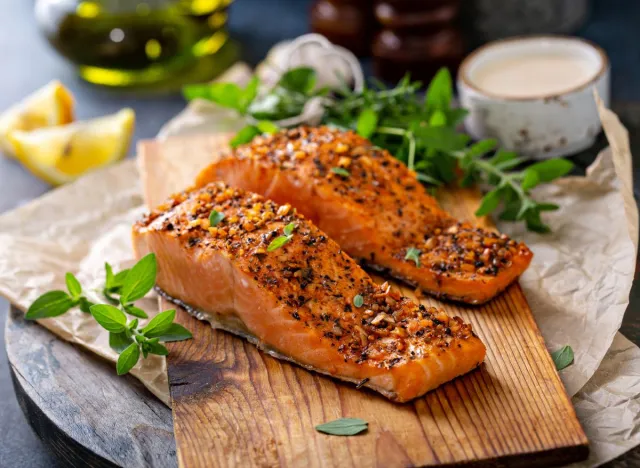
Another amazing recommendation from Mitri? Fatty fish! Great choices include cod, tuna, and salmon. Not only are they wonderful sources of quality protein, but they're also low in calories.
Mitri tells us, "Getting in enough lean protein is essential over 50 to maintain muscle mass and support a faster metabolism, and fish is one of the best sources. Research shows preserving muscle as you get older can therefore promote a healthier weight."
Marissa Meshulam, RDN backs up just how great of a weight loss go-to salmon is, saying, "Salmon is a nutrient powerhouse. It is high in protein and omega-3s, both of which help promote satiety and keep us satisfied. The specific fat in salmon (omega-3s) is great for keeping our minds healthy as we age."
Avocados
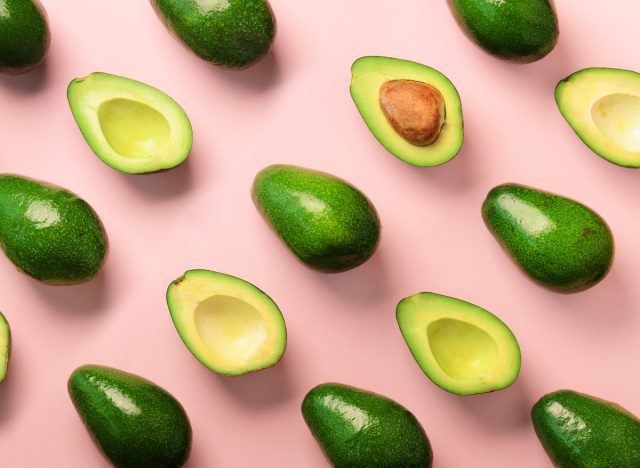
Avocados—aka "the green goddess" of fruit—are full of fiber, healthy fats, and over 20 vitamins and minerals, Elizabeth Shaw, MS, RD, registered dietitian and the owner of Shaw Simple Swaps, says. Recent research reveals that adding avocado to your diet can even promote weight loss.
Prunes
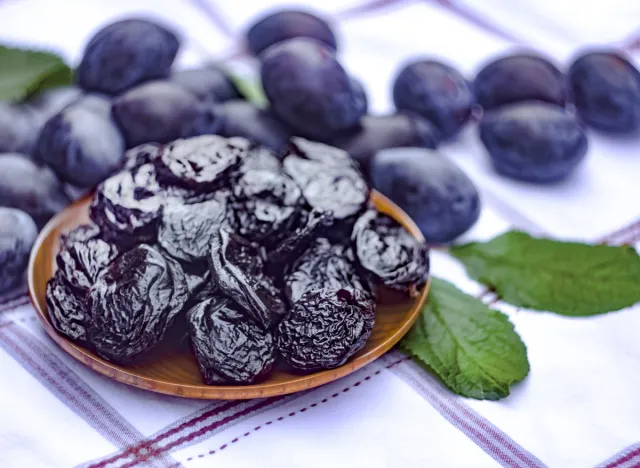
"Focusing on bone health with aging is key for longevity," Shaw says. Research even reveals that eating prunes can help decrease your chance of suffering from age-related bone loss. This fruit works so well in both savory and sweet recipes.
Eggs
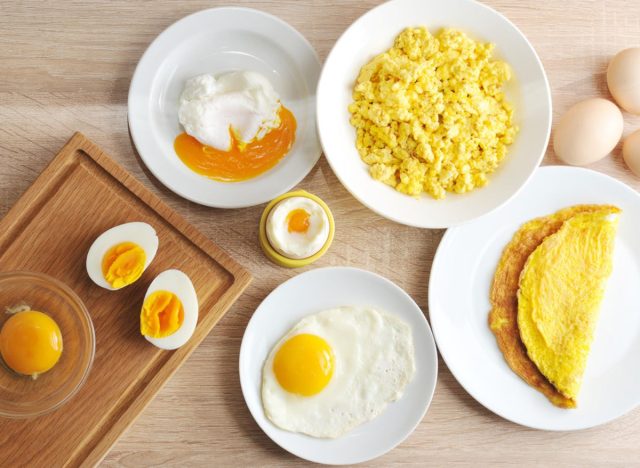
Research shows that the majority of Americans—around 90%, in fact—don't consume enough choline, which Shaw explains is "heavily concentrated in the yellow yolk of your eggs." This B-like vitamin is beneficial for your brain and muscle functions. This is especially critical to be aware of as you age!
Plain Greek Yogurt
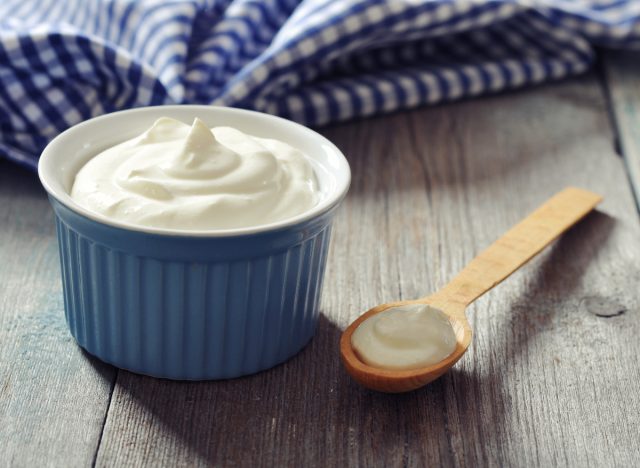
Plain Greek yogurt is an excellent breakfast choice. Just one small container can provide as much as 15 to 17 grams of protein, according to Lainey Younkin, MS, RD, LDN, weight loss dietitian at Lainey Younkin Nutrition. Protein is important to kick up your metabolism. Your body torches double the number of calories when it digests protein, compared to fat and carbs, says Younkin.
"Additionally, if you're lifting weights (which also revs your metabolism), protein helps rebuild muscle mass," she adds. "The more muscle you have, the more calories you'll burn. Mix nuts or seeds, along with some fruit, into nonfat or low-fat Greek yogurt for a balanced breakfast that supports weight loss and keeps you full for hours. Eating enough protein early in the day also prevents mindless snacking at night."
Meshulam loves the goodness of plain Greek yogurt as well, telling us, "For weight loss, make sure you choose a plain variety to limit the added sugar and sweeten it yourself with fruit."
Barley
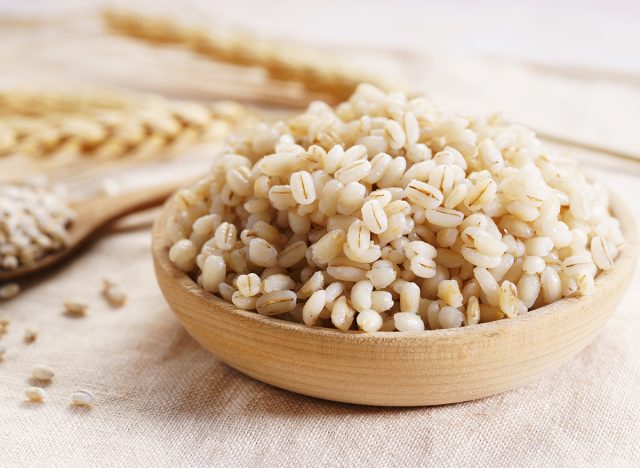
For a very nutritious dose of protein and fiber, whip up some barley! This whole grain will help promote feelings of fullness and lower your blood sugar level.
Younkin explains, "[Barley] contains soluble fiber, specifically beta-glucan, which can help lower LDL ('bad') cholesterol. It may be tempting to skip whole grains for fear of carbohydrates, but this usually backfires. No whole grain means less fiber, which leads to feeling hungry an hour or two later."
Younkin recommends kicking things off with 1/2 cup of cooked barley. Enjoy it as-is, or mix it into your favorite soup or salad.
Dark Chocolate Truffles
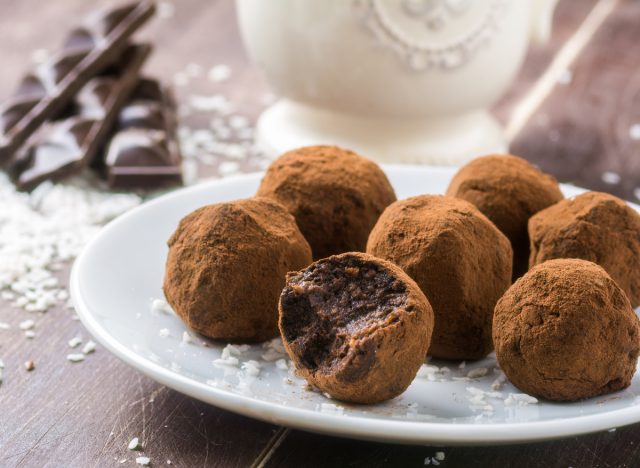
Meshulam believes that in order to achieve weight loss success, you need to follow a diet that's still "flexible and enjoyable." This makes perfect sense since if you like what you're eating, you're more inclined to stick with it!
She specifically recommends "intentional, more nourishing sweets," like That's it Truffles. "They have only one gram of added sugar/ serving, which means you can feel like you are getting a sweet treat and still continue on your weight goals," Meshulam explains.
Cruciferous Veggies
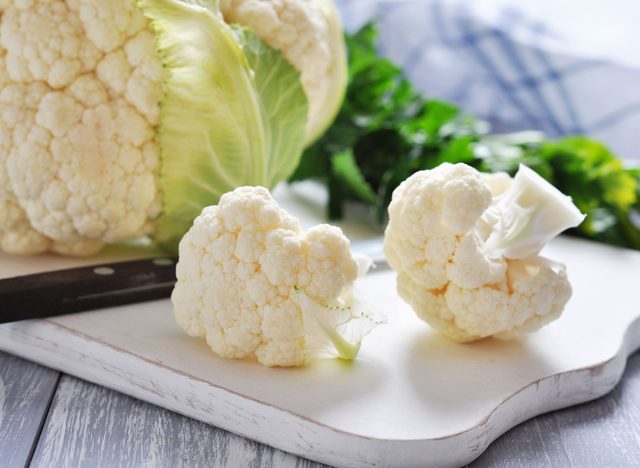
Cruciferous veggies, such as arugula, broccoli, Brussels sprouts, cabbage, cauliflower, and watercress, are rich in nutrients and fiber, making them extremely filling. "Adding cruciferous veggies to your meals can aid in weight loss and help manage constipation that can happen as we age," Meshulam says.
Berries
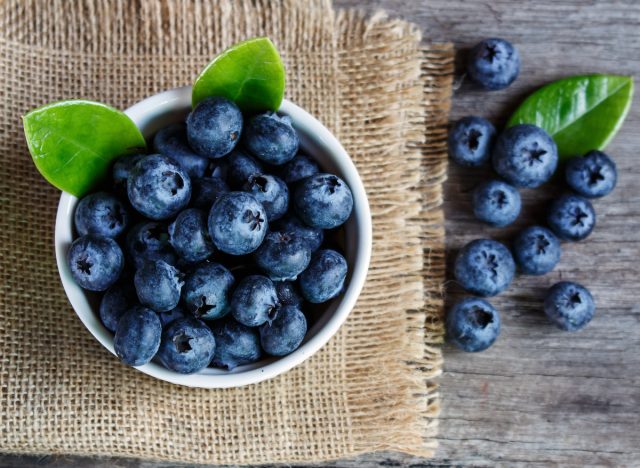
Berries are stellar when you're on a weight loss regimen. They are filled with fiber and antioxidants. Meshulam explains, "The fiber in berries helps slow down the absorption of sugar to your blood stream, which is beneficial for our weight."
Beans and Legumes
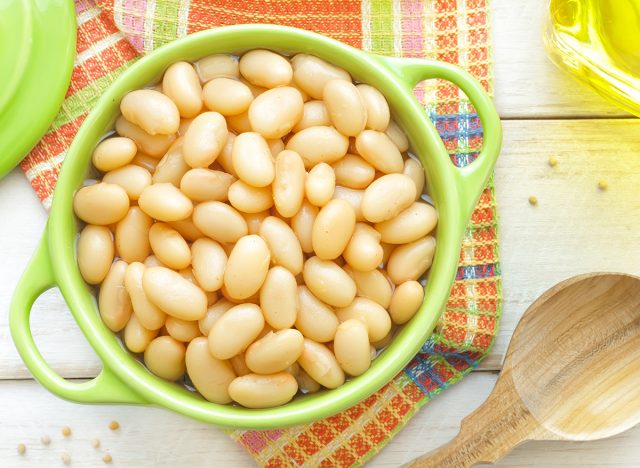
Slow fiber-filled carbs are key when you're focusing on weight loss. Beans and legumes fit the bill of both protein and fiber, which makes them a very filling addition to your plate, according to Meshulam.
Water
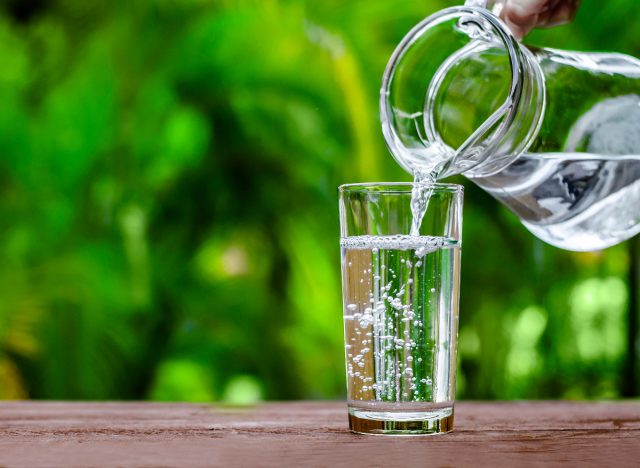
Above all, don't forget to stay hydrated! Meshulam points out, "Although water is not necessarily 'food' per se, adequate water is vital for weight loss. The symptoms of dehydration and hunger tend to mimic each other, meaning many of us tend to eat when we are actually just thirsty. Studies show that as we age, dehydration tends to increase, so upping your water intake is imperative! We need a minimum of our body weight in lbs divided by two (so a 140-pound person needs 70 ounces of water minimum)."








